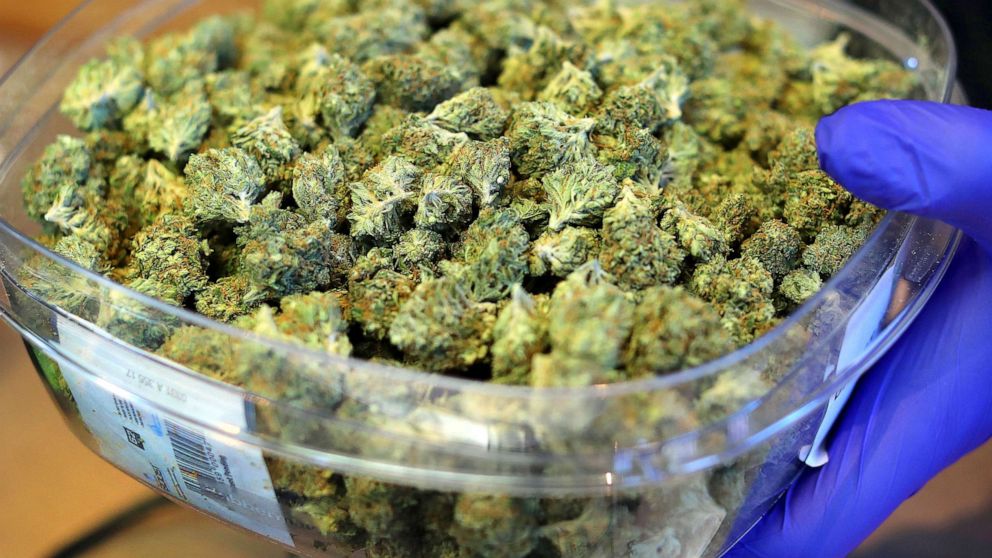
Advocates say African American communities that were hurt when marijuana was illegal and black users and sellers disproportionately faced arrest and prison terms, now are at risk of losing out in the potentially booming, legalized cannabis industry in those same communities.
Retired New York Police Department Sgt. Corey Pegues, who has become a cannabis advocate, told ABC News that the money generated from legal cannabis sales should be reinvested in those communities. He also called for minorities to be given a chance to get into the business.
„You have to include the people that were affected the most — „the minority sector” — making sure they get a piece of the pie,” said Pegues. „It could help people get housing loans, fix the schools, roads, give these kids something to do, they can set up a little money pool to help African Americans and Hispanics by giving them dispensaries and loans with low interest rates to at least start them off.”
While many of the cannabis dispensaries in Denver and Seattle, two of the largest cannabis markets, are in are economically disadvantaged communities, only 4% are owned by African Americans, according to Marijuana Business Daily.
„I still walk into rooms where people are truly baffled by the fact that I’m a cannabis professional and that I exist,” said Jacob Plowden, the deputy director of the Cannabis Cultural Association in New York City.
He added that he is constantly being told by white cannabis professionals that the cannabis industry is not a place for „gang bangers.”
„In the long term, the black community could lose if we just allow people to kind of come afloat in our communities and allow them to just set up licenses, set up businesses, that don’t include us or look like us,” said Plowden. „I think if we’re rushing in this only aspect of seeing like, oh it’s a billion-dollar, trillion dollar industry. That’s where we’re going to lose the most. Because we’re not really thinking about how this could fast-track things like gentrification and economic disparities among black folks.”
Expensive licensing, insurance costs, possible prior felonies and a lack of business experience are obstacles lower- to middle-class African Americans face trying to make it in the industry and analysts acknowledge the lack of diversity.
„Despite our strong equity provisions ensuring that people from communities that have been disproportionately harmed by marijuana law enforcement are included in the new legal marijuana industry, Massachusetts has not yet been able to make much headway in terms of including Black and Latino individuals in the new industry. This is in part due to the high cost of opening a store,” said Jane Allen, a research public health analyst in Massachusetts, the first state to implement equity provisions.
The House Judiciary Subcommittee on Crime, Terrorism and Homeland Security held a marijuana reform hearing in July. They addressed ways in which cannabis prohibition has harmed the less affluent communities and the need for reform.
Following the hearing, 11 national cannabis advocacy groups announced that they have stepped up their efforts for federal marijuana reform through a racial justice lens with the formation of the Marijuana Justice Coalition. The group released a set of principles for federal marijuana reform and encouraged Congress to include criminal justice reforms and promote diversity as legislation is developed, according to the Drug Policy Alliance website.